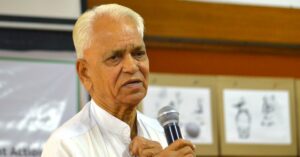65000 Sex Workers Advocate For Rights Like Never Before, Thanks To One Heroic Doctor
In 1995, public health scientist Dr Smarajit Jana formed Durbar, a collective of over 65,000 sex workers, who banded together to advocate for their rights, health, and agency, leading to a number of transformations across the country.
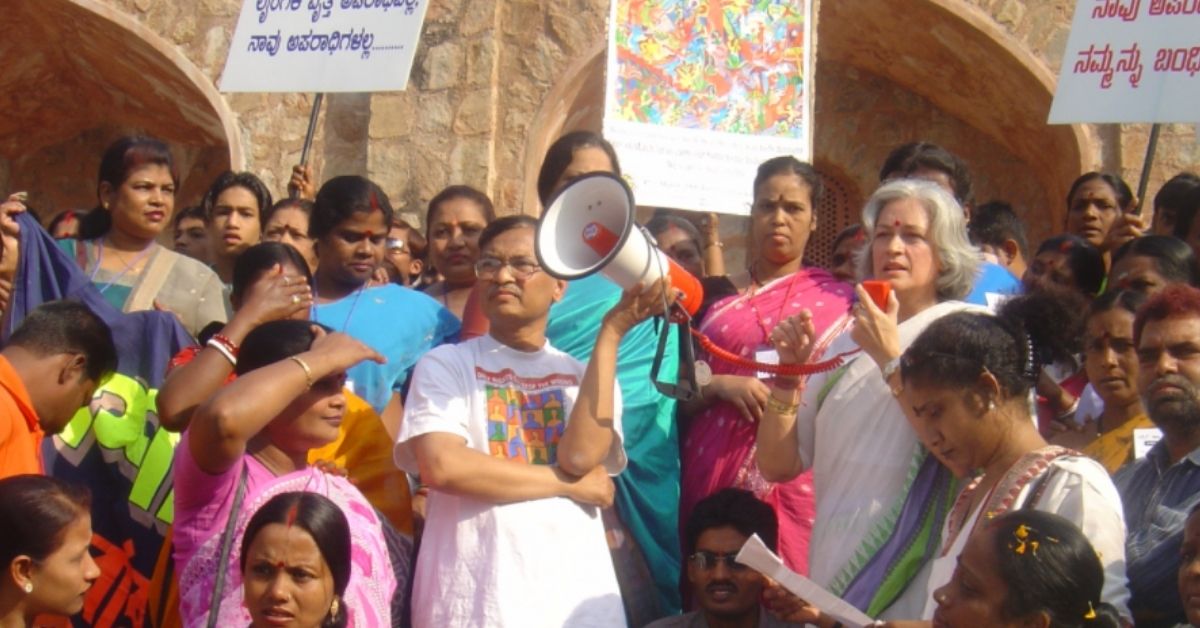
For many years, as all of West Bengal erupted in the annual celebration of Durga Puja, one community was notably left out — sex workers, even though pujo is incomplete without collecting a mound of clay from the doorstep of a sex worker’s home.
Notions of purity and contamination played a role here, with the community’s work deemed as ‘inauspicious’. But 2014 was different for Sonagachi, Asia’s largest red-light district, located in Kolkata, West Bengal.
The Durbar Mahila Samanwaya Committee (DMSC), a collective of over 65,000 sex workers, decided to organise its own pujo, in what was a break from usual tradition. Despite initial opposition from local police, the collective approached the Kolkata High Court, which permitted them to set up a pandal.
“It’s a moral victory for our members,” Bharati Dey, Durbar secretary at the time, told Rediff.com. “Ours is a profession like any other, and it’s time society acknowledged it.” She added that the bhadralok (upper-class folks) “can’t kill [their] spirit”.
This was just one victory among many.
Since the inception of the Durbar in 1995, the collective has worked to sensitise the public about sex workers’ rights and advocate for the abolition of The Immoral Traffic (Prevention) Act 1956 (PITA), legalisation of sex work, and more.
Over the years, the community has obtained voter IDs, bank accounts, health insurance and organised India’s first national convention of sex workers. They have also uplifted thousands of children of sex workers through various initiatives — a sports academy, schools, dance, drama, and music, among others.
The residents of Sonagachi have taken their agency into their own hands — a feat deemed close to impossible before the arrival of public health scientist Dr Smarajit Jana.
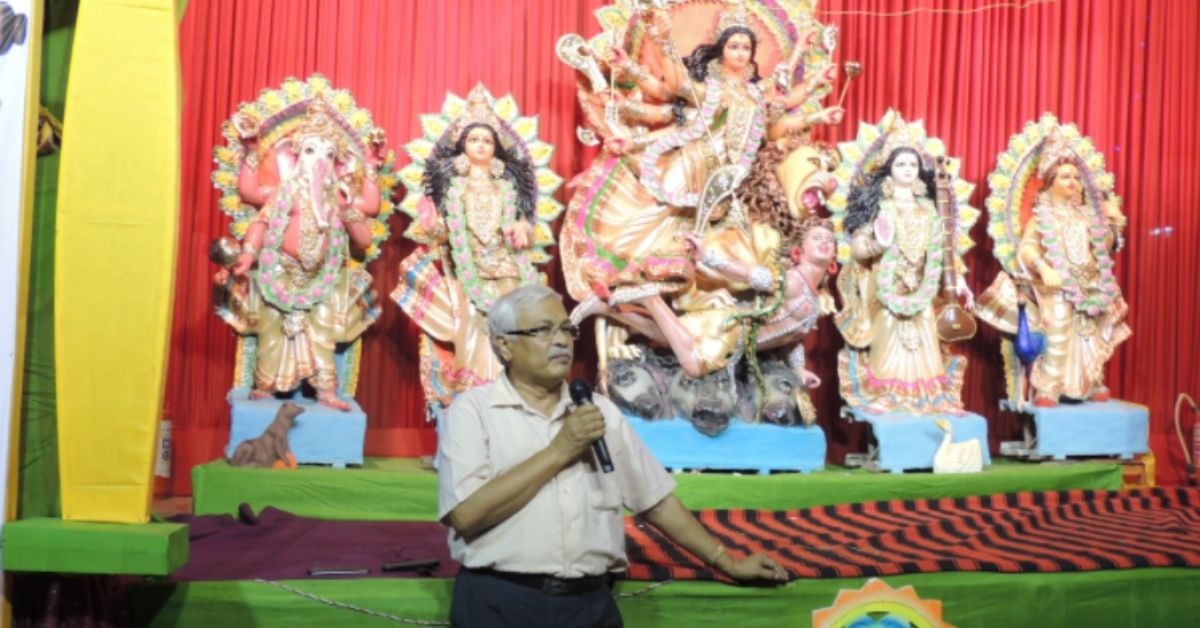
Helming a revolution
Samaita Jana (29), Dr Jana’s daughter, notes that her father had always been a caring and compassionate man.
“Growing up with him was interesting, fun, and unique. He allowed my brother and I the space to explore on our own. He also allowed me to experience the sex worker movement from my very childhood when I would often meet members at our family home before DMSC could secure an office space,” she tells The Better India.
Dr Jana was born in 1952 in a village in the Midnapore district, West Bengal. “He was interested in population health from his early years and pursued a postgraduate in public health. During his youth, he volunteered medical services across West Bengal’s flood-affected regions, as well as to victims of the Bhopal Gas Tragedy,” Samaita, a PhD student at the University of Pennsylvania School of Social Work & Practice, says.
His first job after his MD degree was as a physician in the Employees State Insurance Corporation (ESIC) Hospital. He later became a professor of occupational health and epidemiology at the All India Institute of Hygiene and Public Health.
“In 1992, my father carried out his first survey of the community during his work as a researcher,” Samaita says. “That was his inspiration to start the organisation. One of his major findings involved the need for recognising sex work as legitimate labour without any social or cultural prejudice. In addition, he identified low self-esteem as a major barrier to the community in their fight for their rights.”
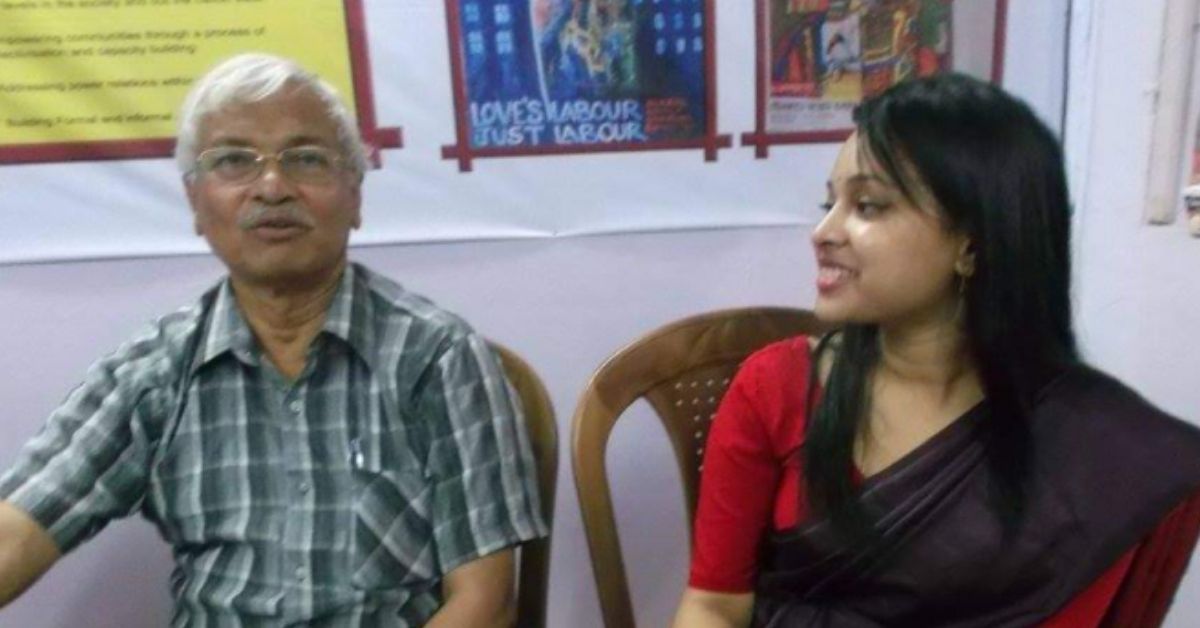
Samaita says the formation of the Durbar collective was a significant milestone because it set an example for community leadership in the context of health interventions. During the cooperative’s initial years, Dr Jana realised that providing medical service and advice alone is not enough to make a difference.
“If they were to prioritise health, they would need help to solve a host of other crippling problems — stigma, low social status, and pervasive violence by state authorities and criminal gangs. Many of the women were mothers, deeply concerned about the future well-being of their children. My father opposed efforts by state agencies to forcefully separate kids from their mothers. Instead, he helped Durbar set up a residential school in Baruipur, and another in Ultadanga, so the children had the opportunity to live in an alternate environment,” Samaita explains.
Revolutionary changes closely followed the organisation’s inception. A study released ten years after the Durbar began its work stated, “In India, HIV seroprevalence rates among sex workers have ranged from 50–90% in Bombay (Mumbai), Delhi, and Chennai. However, HIV rates of only 10% have been observed among sex workers in Calcutta (Kolkata), a city on the drug route into the heart of India and one of the most impoverished urban areas in the world. Condom use has risen in Calcutta (Kolkata) in recent years, from 3% in 1992 to 90% in 1999, compared with steady rates of low condom use among sex workers in other cities in India.”
Presently, Durbar is an umbrella organisation of 19 societies. This includes the Usha Multipurpose Cooperative Society Ltd, which the Global Network of Sex Work Projects (NSWP) says is the largest and the first-ever sex worker-led financial institution in South Asia, exclusively run by and for sex workers.
It also includes Amra Padatik, a collective of children of sex workers; Komal Gandhar, a collective of performing artists; Mamta Network of Positive Women, a group for sex workers living with HIV; Durbar Sports Academy to integrate children of sex workers into mainstream sports; and Sathi Sangathan, a collective of babus (as regular customers at Sonagachi are called) who work to protect the rights of sex workers.
Kusum (42), the All India Network of Sex Workers president, spent many years working with Dr Jana to carry out several projects. “Dr Jana was the chief advisor of the network,” she tells The Better India. “Under his guidance, we were able to strengthen the community, get ourselves rights, find support, collaborate with local police, and more. We would go to red light areas and talk to our sisters about how to form collectives, what that would entail, what issues they face, etc.”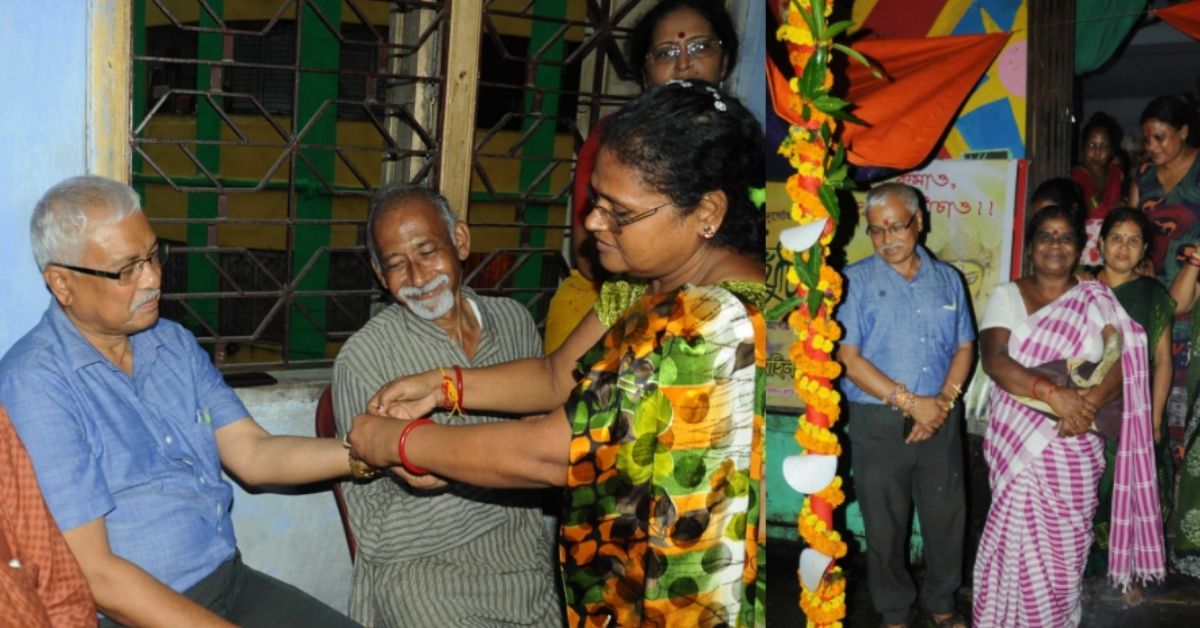
“We go to local authorities to sensitise them to these issues — pertaining to children who don’t have fathers, problems with ration, pension, schools, etc. He helped us sensitise on both ends — authorities shouldn’t view sex workers as gandi mahilayein (dirty women), and committee members should remain resilient even in the face of jibes. Women don’t go alone, we go together to stand with each other and ask for what we need. Earlier, the police would beat us up at red lights, conduct raids, etc. Eventually, we were able to bring some level of sensitisation, talk to them and express our concerns,” she adds.
‘A leap of faith’
In May 2021, Dr Jana developed COVID-19 related complications and passed away at the age of 68. Since then, Durbar’s work seems to have come to a standstill, Kusum and Samaita say.
“Since Dr Jana has passed, the morale has been low. The sense of guidance has disappeared. He was a strong leader. He gave us surety that he truly cared for our cause,” Kusum says. “With him, we always had a seat, a right, to speak up at conferences and meetings that willingly excluded us otherwise.”
Meanwhile, Samaita says, “My father worked hard to make sure all the 19 societies worked in tandem. Since he passed, staff meetings have dwindled.”
She adds, “Issues and contexts have changed over time, but my father ensured that the movement and the community were up to speed with the events unfolding around them. In 2019, he organised several meetings to discuss the implications of NRC and CAA in the general sex worker community. Durbar’s advocacy efforts shifted to COVID prevention in 2020. Here, too, he helped Durbar members collectively bargain with brothel keepers to waive off rent for three months. It is important to note that this was successfully achieved not through any legal, formal process, but simply through the power of collective bargaining.”
Human rights activist Mari Marcel Thekaekara wrote for The Wire, “The difference was Jana was not merely a social worker. He was revolutionary in that for perhaps the first time in India some one talked about rights for sex workers. Jana blazed a trail. It took a very special sort of person to make that leap of faith.”
Edited by Vinayak Hegde
Sources:
Durbar
HIV Prevention Among Sex Workers
The Wire
NSWP
Rediff
This story made me
- 97
- 121
- 89
- 167
Tell Us More
We bring stories straight from the heart of India, to inspire millions and create a wave of impact. Our positive movement is growing bigger everyday, and we would love for you to join it.
Please contribute whatever you can, every little penny helps our team in bringing you more stories that support dreams and spread hope.







